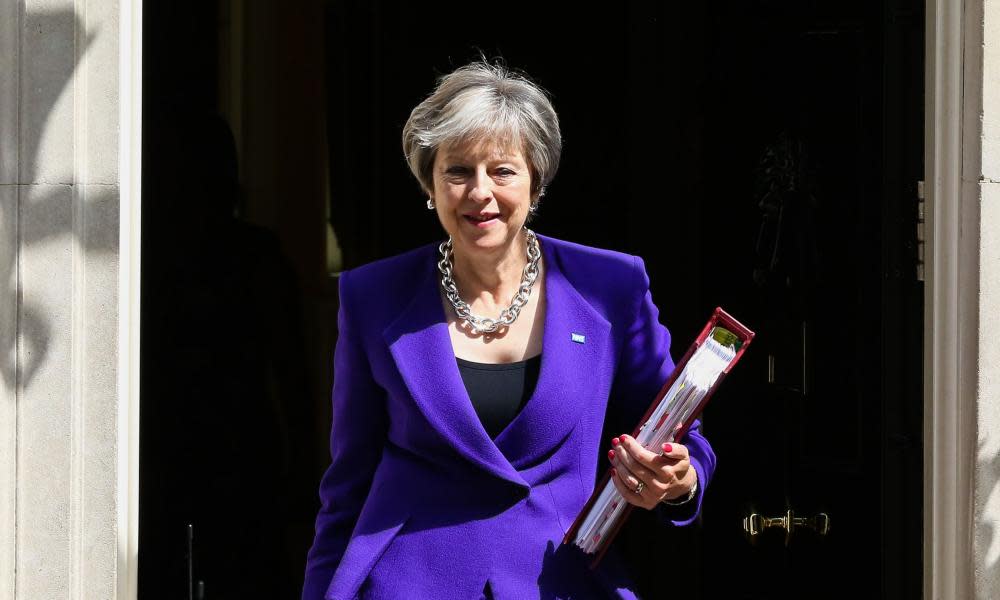Brexit white paper seeks free movement for skilled workers and students

Businesses should be able to move “their talented people” from the UK to the European Union – and vice versa – after Brexit, according to the government’s strategy white paper which was published amid chaotic scenes in the Commons.
The document also says the government is prepared to allow EU citizens to travel freely without a visa in the UK for tourism and temporary work and allow EU students to study in the UK.
Although the white paper is emphatic that there will be an end to the free movement of people at the end of the transition period in December 2020, the document says it will be necessary to recognise the “depth of the relationship and close ties between the peoples of the UK and the EU”.
Hard Brexiters had voiced concern that despite the headline commitment to end free movement, EU citizens would still have preferential access to the UK compared with other countries, although Whitehall sources have indicated that it would be theoretically possible for other countries to strike similar deals in the future.
The document said that on movement for workers after Brexit, “the UK’s future economic partnership should therefore provide reciprocal arrangements, consistent with the ending of free movement”, including measures that “support businesses to provide services and to move their talented people”.
There was little further detail on how migration arrangements could work after Brexit, however, although a white paper has been promised in the autumn. Officials have indicated that the notional cap on net migration at 100,000 a year will remain after the UK departs.
The Brexit white paper has been described as the most important document to emerge since the referendum of June 2016. Cabinet rows about the soft-Brexit nature of the plan prompted the resignations of Boris Johnson and David Davis at the beginning of the week.
The release of the white paper sparked chaotic scenes at the House of Commons when it became apparent that copies of the document were not immediately available to MPs as the new Brexit secretary, Dominic Raab, got up to introduce it.
There were shouts of complaint from across the chamber, and former Brexit minister Steve Baker tried to raise a point of order. The Speaker, John Bercow, suspended proceedings for five minutes as late-arriving copies of the document were flung around the chamber.
Raab apologised for the late arrival of the white paper. He told MPs: “I’m confident that a deal is within reach, given the success of the prime minister and her negotiating team,” and later said: “Now is the time for the EU to respond in kind,” adding that he expected to meet the chief EU negotiator, Michel Barnier, next week.
In response, the shadow Brexit secretary, Keir Starmer, began: “Can I gently say this: he’s not got off to a very good start. The utter shambles of the last 20 minutes that led to the suspension of the house during a statement is clear evidence of why the government is in such a mess.”
It was, Starmer said, a disgrace that the media had been allowed to see the white paper from 9am, while MPs had been shown it hours later. Starmer also condemned the white paper as both unworkable and unlikely to survive opposition from Tory MPs.
“Across business communities, among trade unions, and I genuinely believe across this house, there is growing unity that the UK should remain economically close to the EU,” he said. “And that means negotiating a comprehensive customs union with the EU27, and a single market deal with the right balance of obligations tailored to the UK.”
Raab also faced an immediately scathing response from the Conservative MP Jacob Rees-Mogg, the chair of the European Research Group of Tory Eurosceptics.
In a statement he called the white paper “the greatest vassalage since King John paid homage to Philip II at Le Goulet in 1200”.
Rees-Mogg said: “This white paper has not needed age to turn yellow. There are very few signs of the prime minister’s famous red lines. It is a pale imitation of the paper prepared by David Davis, a bad deal for Britain. It is not be something I would vote for nor is it what the British people voted for.”
In an introduction to the white paper, Theresa May said the UK’s negotiating position with the EU had evolved, in an approach that she said “requires pragmatism and compromise from both sides”. The prime minister added: “This was the spirit in which my cabinet agreed a way forward at Chequers,” with no reference to the two resignations that followed.
Unhappy rightwing Conservatives are expected to study the document carefully, and will consider whether they want to support a leadership challenge to May. They have already pledged to mount a guerrilla campaign of opposition to her leadership, warning there could also be further resignations from the government.
The document sets out, as expected, proposals for the UK to agree to to a “common rule book” of standards for food and goods after Brexit, and a “facilitated customs arrangement” in which the UK would collect both UK and EU tariffs for goods entering Britain.
Such proposals so irritated Johnson that he said he believed that the UK would be “headed for a status of a colony” because the country was proposing to share rules with the European Union.
Ministers hope to sign an association agreement with the EU after Brexit, to allow “regular dialogue between UK and EU leaders” and to negotiate over any problems that emerge.

 Yahoo News
Yahoo News 
